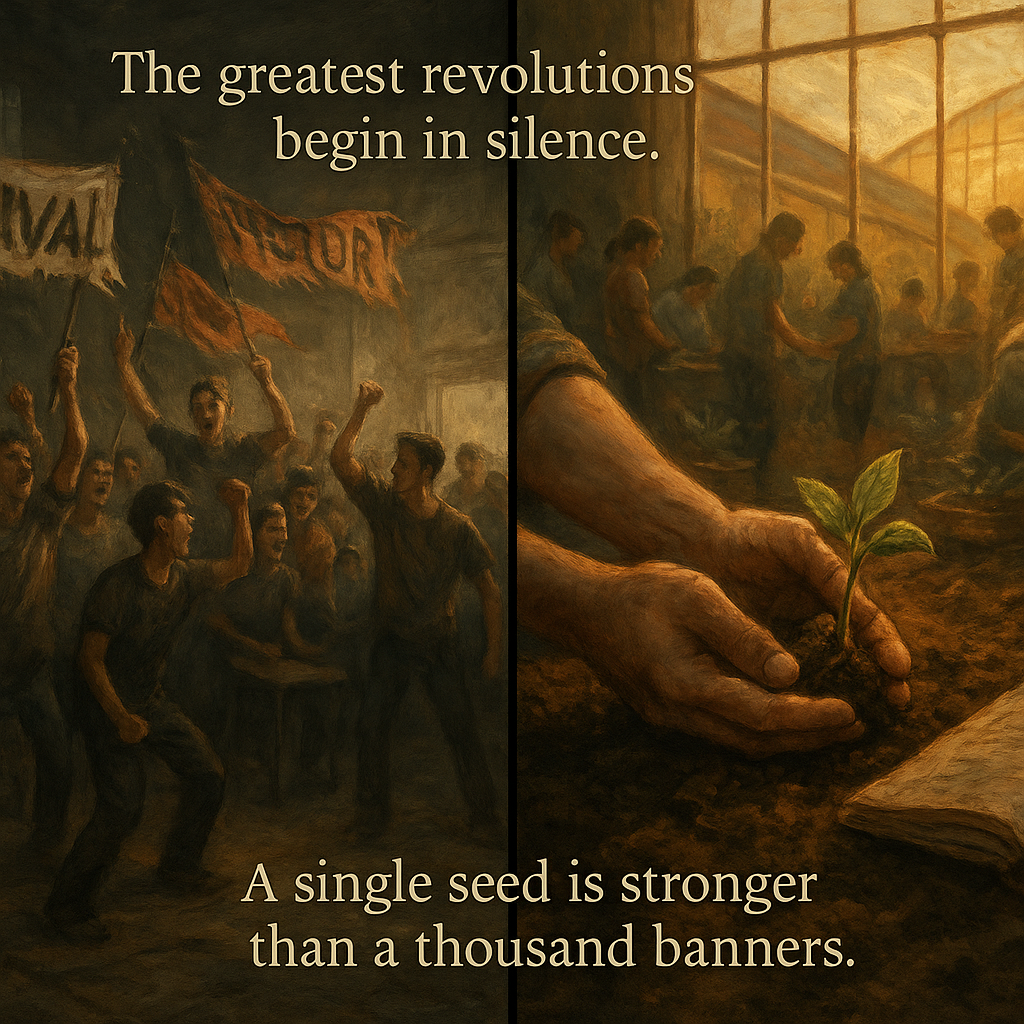
The greatest changes rarely announce themselves with fanfare. They arrive like a seed on the wind, finding purchase in cracked soil where nothing else would dare to grow. They are quiet, patient, and utterly revolutionary.
This story does not begin with a treaty signed by world leaders, nor with the thunderous applause of a historic election. It begins in the lingering scent of damp earth and the soft rustle of young leaves in a school greenhouse. It begins with a ledger.
That book, its cover smudged with soil and its pages filled with a growing record of small, careful acts, was more than a log. It was the first draft of a constitution. Not one written in the language of lawyers and politicians, but in the clear, practical script of stewards. It recorded not laws, but patterns of care: who could be trusted to mend a broken pane without being asked; who noticed the seedlings needed water before the sensor blinked dry; who listened, truly listened, even when the words were hard to hear.
The air in the greenhouse was still, heavy with the scent of earth and basil, as though the plants themselves were holding their breath. Emil sat at the old bench, the ledger open on his lap. His eyes lingered on Priya’s last entry:
“The fruit is not measured in harvest but in what did not break.”
He read the line again, and again, until the words blurred into something larger than the page. For the first time, he felt the weight of what they had begun. The greenhouse was no longer just a refuge, nor even a symbol. It was a blueprint. And blueprints, he knew, demanded to be built.
The old order—the world of banners and speeches, of rival clubs and curated slogans—had not collapsed with a bang, but with the quiet persistence of a better way. It was undone by the efficiency of a repaired irrigation line and the undeniable truth of a basil plant, offered not in triumph but in mutual understanding.
The victors were not a party or a faction. They were a network. A gardener’s alliance. And their first act of governance was simply to open the door.
But a garden, no matter how harmonious, is not a society. It is a rehearsal. The real work—the brutal, beautiful, painstaking work—begins when you try to build a structure that can outlast the season, withstand the storm, and grow beyond the glass walls.
This is the story of the Greenhouse Accords: how a group of students, guided by the wisdom of an old man and the hard-earned lessons of their failures, attempted the impossible—to design a system that resisted the Four Absences not by fighting them, but by making them obsolete. To build a community where power was measured by responsibility, where justice was tempered by mercy, and where every voice had a place in the canopy.
They would learn that drafting a compact is easier than living by it. That the temptation to draw lines is a ghost that never fully leaves. That the most dangerous storms come from within.
It was the first laboratory of a new kind of democracy. A place where the most radical idea was not a shout, but a question whispered over a tray of seeds:
If we can learn to listen to the soil, can we learn to listen to each other?
The experiment had already begun — quietly, irreversibly — with a single seed.

